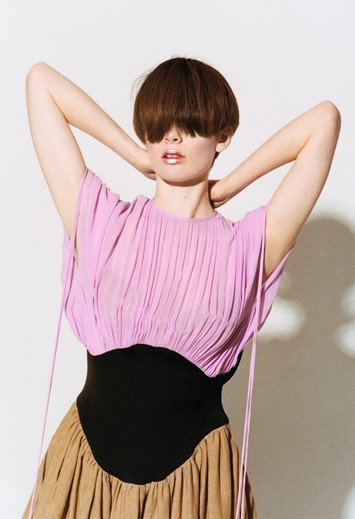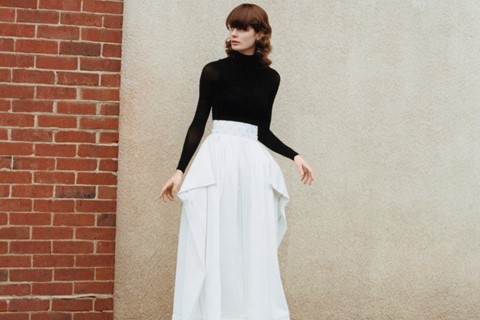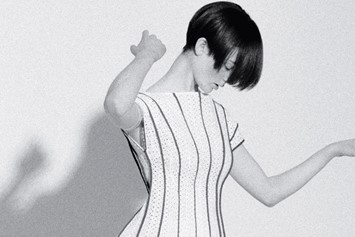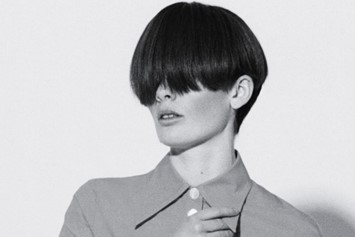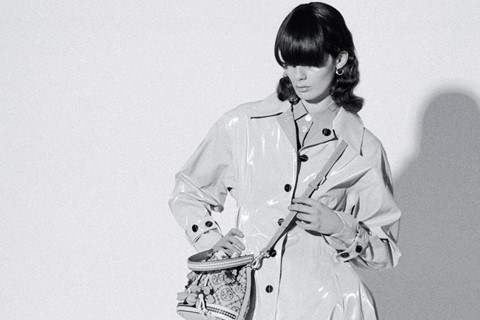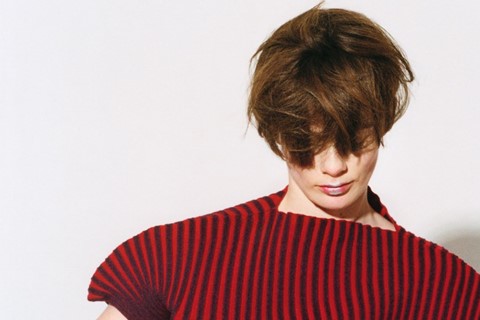Here, Tory Burch speaks about the pragmatic ingenuity of McCardell, American creativity and empowering women
This article is taken from the Spring/Summer 2022 issue of AnOther Magazine:
Tory Burch first became aware of the game-changing American designer Claire McCardell when she was a student at the University of Pennsylvania. “I was in a class on women in history and I was blown away by her fearlessness,” Burch recalls, dialling in from her home in New York a little ahead of Christmas last year. “She was such an innovator and completely broke the mould. She went against everything that was happening in fashion throughout the 1940s and 1950s, and it goes without saying that American sportswear is the way it is because of her.” Honouring the impact of the designer, Burch not only dedicated her Spring/Summer 2022 collection to McCardell but has also set up the Tory Burch Claire McCardell Fashion Fellowship at the Maryland Center for History and Culture, joining their names still further.
As Gabrielle Chanel and Christian Dior were revolutionising women’s fashion in post-war Europe, over in the US McCardell was responsible for a quiet radicalism all her own. She had gained experience both sides of the Atlantic: having first studied at the New York School of Fine and Applied Art (now Parsons), the aspiring designer landed in Paris to continue her education, ripping apart haute couture pieces by Madeleine Vionnet to figure out their workings.
Though her early career would take her back to Paris, by the time the Second World War had begun, McCardell’s attention had diverted from the intricacies of French fashion to transforming the wardrobes of American women through understated, affordable clothing that heralded a bold new era in contemporary style. Among her most important and enduring contributions to modern fashion were her pioneering use of easy zip fastenings and the roomy pockets she stitched into her functional, throw-on dresses – dresses that allowed women to ditch their handbags and join men in going hands-free for the first time.
It’s unsurprising that Burch would feel a kinship with the groundbreaking McCardell. Burch started out in PR, working with the likes of Loewe, Ralph Lauren and Vera Wang before launching her eponymous label in 2004. She also sought to create beautiful, wearable, functional clothing crafted with the modern woman in mind. Fusing sportswear sensibilities with something a little more free-spirited and bohemian, the label has grown to encompass a whole lifestyle in the 18 years since it landed – that recognisable double-T logo spreading around the globe and finding fans across generations.
The Tory Burch brand transcends clothing. In 2009, the designer established her namesake foundation, which seeks to empower and uplift female entrepreneurs. Through funding, educational resources and access to fellowship and mentoring schemes, Burch is instilling in a new generation of women the skills and knowledge to launch their own businesses. In an industry sometimes known for its purely performative activism and philanthropy, Burch has been putting her money where her mouth is for more than ten years.
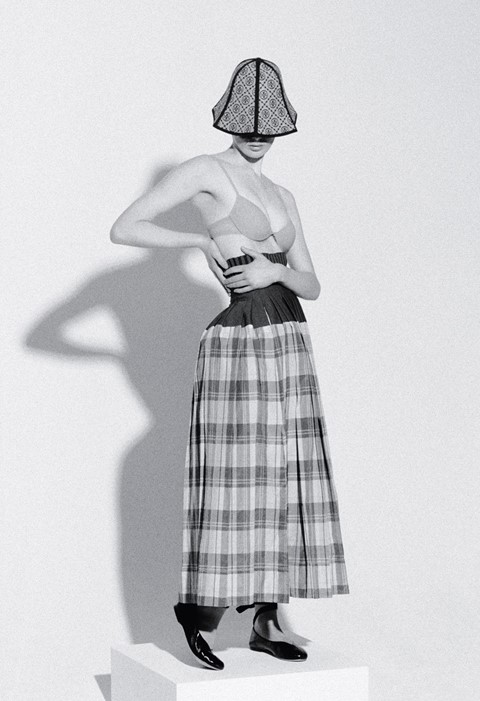
Burch says she “didn’t think much” about McCardell in the interim between graduating and launching her own label. But last year, ahead of the September opening of the grand show In America: A Lexicon of Fashion at the Metropolitan Museum of Modern Art’s Costume Institute, the designer suddenly found her way back into Burch’s consciousness. Six days before the exhibition opened, during New York Fashion Week’s first physical incarnation in 18 months, Burch sent a collection that paid homage to McCardell’s indelible legacy down the catwalk for the new season.
That meant easy, breezy skirts in kaleidoscopic plaid, stripe and zigzag motifs, louche, high-waisted trousers in plain calico and cotton denim, and panelled pseudo-corsets, the inner workings of which – stitched darts and seams – were highlighted in surface detail. Always with function as well as fashion in mind, Burch also presented button-through shirts with exaggerated collars and cuffs, while coats came in wipe-clean vinyl and classic trenches were snatched at the waist. The end result was a joyful cacophony of colour, texture and print that spoke of optimism and emancipation. “I think every designer is inspired by Claire McCardell when you think about it,” Burch says. “She worked hard to give women freedom and comfort. She was such an advocate for giving women the confidence to dress in their own individual way.” The simplicity of McCardell’s designs afforded women the luxury of styling them just the way they wanted to. The idea was that they made them their own.
Also in the line-up at Burch’s show: a series of looks that riffed explicitly on McCardell’s best-known works. Burch reimagined her signature Pop-over and neatly pleated Monastic dresses, as well as her footwear in the form of satin ballet slippers and striped ankle boots. “When I first started working on the collection, I went out to the Maryland Center for History and Culture, which is where they house Claire’s personal and professional archives,” Burch says. “It was so fascinating to delve into her work and her letters and diaries and really begin to understand her thought processes. When you look at her clothing, it’s all extremely relevant today. Those pieces don’t seem dated at all – some might have a more 1950s silhouette, but there’s such modernity to them.”
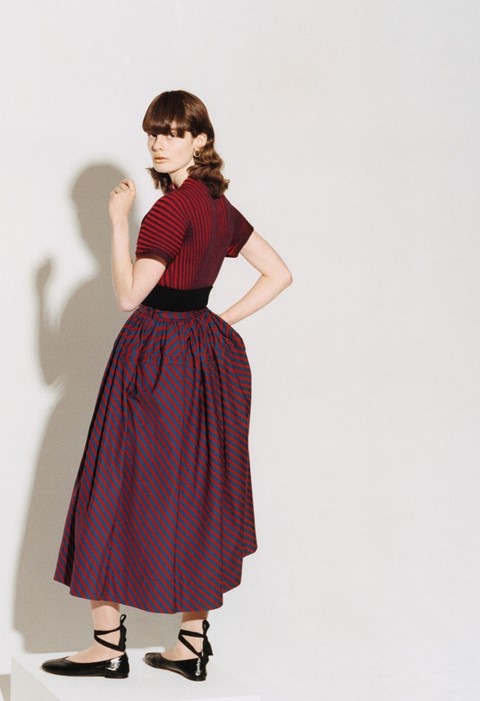
Burch’s involvement with the Maryland Center didn’t end there. As well as creating the fellowship with the institution, enabling a budding fashion historian to co-curate a fashion exhibition in the Claire McCardell Gallery – for which applications were rolling in during the winter months – the designer has worked with it to curate an exhibition that chronicles McCardell’s illustrious career. By this summer, that show will have opened its doors and the recipient of the fellowship will have been announced. For Burch, highlighting and celebrating the women who changed fashion – as well as supporting those who may go on to do so – has never been more important.
While Mademoiselle Chanel and Monsieur Dior may be the names that spring immediately to mind when considering the trailblazers of early-20th-century fashion, Burch is intent on making sure McCardell is given the recognition she richly deserves. “It all comes down to women’s empowerment,” she says. It is an approach Burch herself understands well. “A huge part of the reason I started the company was to start a foundation for women. It’s always been part of the dialogue, and even more so since we started in 2009. I’m very proud to have a platform that’s changing the dynamic for women, but also of the collections we’re creating. We’re offering our customers clothing and accessories that help them feel beautiful and confident – the best versions of themselves.”
This article appears in the Spring/Summer 2022 issue of AnOther Magazine, which is on sale here.
Hair: Naoki Komiya at Julian Watson Agency using BUMBLE AND BUMBLE. Make-up: Janeen Witherspoon at MA and Talent using MAKE UP FOREVER. Model: Jo Helsloot at IMG Models. Casting: Piotr Chamier at Streeters. Lighting assistants: Matt Moran and Emma Harries. Styling assistant: Oliwia Jancerowicz. Producer: Siân Moodliar at Artistry London. Production assistant: Jason Minnaar
